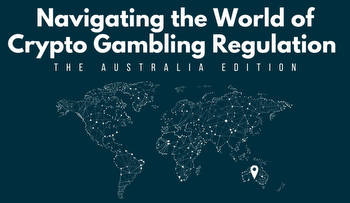Critics Argue Australia’s Approach to Regulating Online Gambling is Becoming too Paternalistic

Online gambling has become a globally successful enterprise with enormous growth worldwide and new platforms popping up all the time. As a result of all that popularity among gambling enthusiasts, it’s become a delicate balancing act for Australian authorities whose regulation of the industry is caught between needing the tax revenue and wanting to protect all involved while trying to avoid losing out to offshore competitors in the process.
However, some view Australia’s continuing crackdown on online gambling as going too far and heading in a direction that will eventually kill the industry. With a myriad of enticing platforms all over the world, there are plenty of offshore platforms waiting to pick up the pieces if that happens. Australian players are always on the lookout for perks related to the speed of payouts or ones that provide the least restrictive experience. According to casino expert, Sergio Zammit, casinos that offer fast withdrawals can process payments within minutes or hours, rather than days or weeks.
On average, offshore sites can offer players these kinds of perks more often as they are subject to less paternalistic regulations. Add to the fact that many offshore sites now offer the latest craze from online casinos and it becomes clear why Australia is in a tricky spot when it comes to how harsh a direction it chooses to take its iGaming regulations in. That craze is crypto gambling and it allows players at real money online casinos to bet and play using cryptocurrency.
As perhaps one of the leading adopters of cryptocurrencies so far through this initiative, the iGaming industry has seen interest soar in crypto casinos. It isn’t rocket science to figure out why. These types of platforms feature virtually instant payouts and far less restrictive sign-up processes since they don’t have to adhere to Know Your Customer (KYC) policies or even ID verification in most instances. This is because crypto gambling, like anything cryptocurrency-related, utilizes transactions that are verified using blockchain technology.
The entire appeal of cryptocurrency and blockchain technology is that it’s able to produce a digital ledger that records transactions in a virtually immutable way that’s also free of central authority. As a result, in the online casino context, it can provide a far more private experience since transactions are recorded via pseudonyms, ensuring players can retain a degree of anonymity and discretion when playing. Add to that the fact that crypto casino platforms also often come with more generous welcome bonuses and feature provably fair gameplay and it becomes obvious why offshore platforms are becoming so popular all over the world.
In comparison, Australian online gambling platforms must adhere to strict guidelines in terms of following KYC and AML procedures and a myriad of other licensing requirements and rules that are aimed at harm reduction and strictly enforced. Many believe such a legislative regime is necessary to ensure fair play and responsible behavior from both the providers and players. However, others argue that it results in an overly paternalistic approach that is becoming fodder for offshore platforms that are more lax with their regulations, enabling them to keep lapping up Australian players in droves.
As a result, not only do Australia and many other first-world nations with progressive tax laws keep losing local players to offshore platforms, but they face losing higher and higher percentages of potential tax revenue that can amount to billions flowing out of the country too. When all of this is weighed against the harm reduction goals of Australia and other countries like it, it often doesn’t feel very worth it. This is likely because arguments against a nanny state stem from the fact that such a form of governance inherently creates a more stifling society, one where people will always gravitate toward behaviors that beckon them with the allure of a freer and less restrictive regime.
After all, nannies are meant to watch over and protect their wards, keeping them from harm at all costs. The problem is that nannies are meant to take care of babies and young children whereas state gambling laws are aimed at adults. Adults are meant to self-regulate, so keeping them from harm at all costs also means no personal responsibility or accountability need to ever be shown from their side.

































